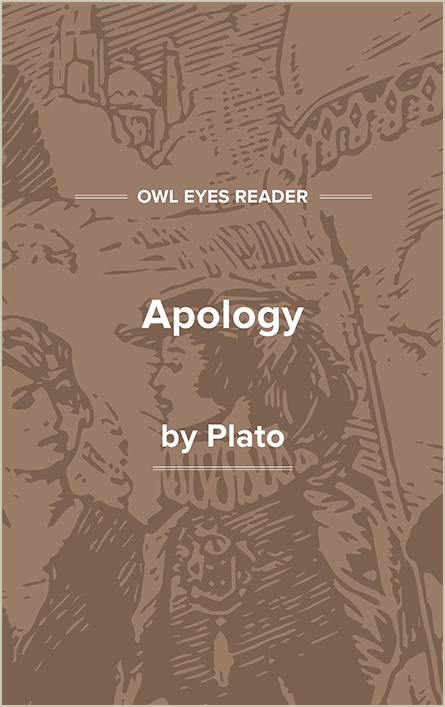Study Guide
Analysis Pages
Summary
Tertullian, a highly educated Roman citizen and lawyer from Carthage in North Africa, converted to Christianity in 193 c.e. because he was so impressed by the behavior and faith shown by Christian martyrs. He was convinced that the one true religion was Christianity, not one of the various philosophical systems and cults then widely practiced in the Roman Empire. Tertullian thought that if he could explain the content of Christian belief to other educated non-Christian Romans, they would see the truth of Christianity, convert, and cease to persecute Christians. Tertullian, not a man of moderate temperament, offers a fiery defense of Christianity in his Apology. He not only advocates forcefully in favor of Christianity but also seeks to discredit traditional Roman polytheism and emperor worship, calling them nothing more than idolatry and baseless superstitions.
Apology, in the Latin sense of apologia, means to explain, which is what Tertullian does in his Apology. Speaking to Romans very similar to himself in culture and education, he explains why all the accusations of atheism, incest, and cannibalism against Christianity were ludicrous and why Christians should be thanked rather than persecuted for expounding the truth to their fellow citizens. He argues that Christianity was a benefit rather than a liability to the Roman Empire and that only bad emperors would persecute a good religion.
Tertullian was writing at the close of the second century c.e. when Christianity, though a fragile and discontinuous presence in the Roman Empire, had begun to come to the attention of Roman authorities who regarded it as just another unauthorized organization with potentially dangerous overtones. The authorities suppressed it as seditious and prosecuted members of the quasi-secret society for treason. They neither knew nor cared about Christianity as a belief system; it was not a recognized religion and therefore was banned.
Arguing like the lawyer he was, Tertullian examines the accusations made against Christianity and Christians. He demonstrates the moral integrity of Christians who are exercising their liberty of conscience, an idea Romans claim to value. According to traditions of Roman justice, Christians must be found guilty of crimes before they can be punished. Try as they might, the accusers of Christianity have neither the legal nor logical grounds to substantiate their accusations. Christians cannot be atheists because they believe in a deity. Every other ethnic and geographical group within the empire is allowed to worship particular deities, which Tertullian claims are nothing more than human mental and physical creations. He asks why Christians alone are forbidden to worship their deity, which he claims is above all tribal and geographical deities.
Christians do not engage in cannibalism and incest in their agape or fellowship meals together. Tertullian gives a rather complete description of early worship services and meetings that took place in members’ homes: Christians met to read Scripture, sing hymns of praise to God, agree to treat one another with honesty and charity, and share a meal together. When Christians say they love one another, Tertullian explains, they mean as friends and members of a community. Because Christians had to meet in secret for fear of persecution, outsiders accused Christians of engaging in various sexual perversions. When Christians commemorated the Last Supper by sharing the body and blood of Christ with one another, their accusers took this quite literally and thought Christians were practicing cannibalism. Tertullian debunks this false...
(The entire page is 850 words.)
Owl Eyes subscribers get unlimited access to our expert annotations, analyses, and study guides on your favorite texts. Master the classics for less than $5/month!

